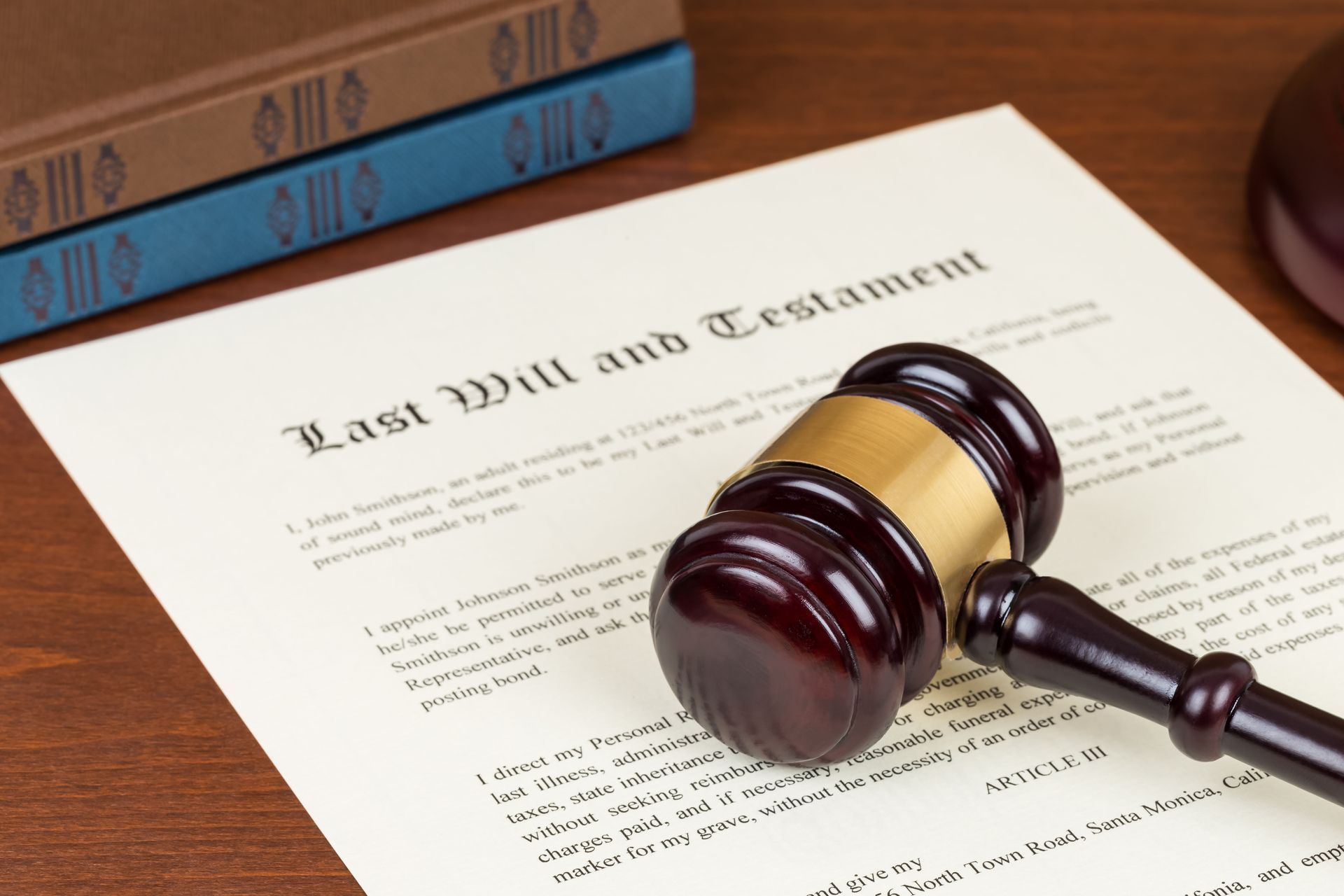Trusts vs. Wills: What’s the Difference? A Guide From Your Local Estate Lawyer
In the realm of estate planning, the terms “trust” and “will” are often used interchangeably, yet they serve distinct purposes and offer different benefits. As your local estate lawyer will tell you, each of these tools has unique features that can influence how assets are managed and distributed, depending on personal circumstances and desires. In the United States, according to CNBC, a significant 67% of Americans lack an estate plan, highlighting the need for greater awareness and understanding. This article aims to provide a comprehensive overview of trusts and wills and their advantages and disadvantages.
Understanding Trusts
Definition and Core Purpose
A trust is a fiduciary arrangement that allows a third party, known as a trustee, to hold assets on behalf of a beneficiary or beneficiaries. Trusts are established to ensure that the management and distribution of assets occur based on the grantor’s wishes, during and after their lifetime. The core purpose of a trust is to provide a structured mechanism for controlling and protecting family wealth, addressing potential conflicts, and fulfilling specific financial objectives.
Advantages of Using Trusts
A good local estate lawyer will make it clear that trusts offer several benefits, including privacy, probate avoidance, and asset protection. By bypassing probate, trusts facilitate the efficient transfer of assets, avoiding the lengthy and often costly legal process associated with wills. This can be particularly advantageous for individuals looking to maintain privacy, as probate records are public, whereas trusts are not.
Potential Drawbacks of Trusts
Establishing a trust can be more expensive and complex compared to setting up a will. The process may require ongoing administrative work to manage the trust effectively, which can include tax filings and asset retitling. Trusts can also be subject to scrutiny from beneficiaries, especially when terms are not clearly defined or if a conflict of interest arises with the trustee. Additionally, if not properly funded or structured, a trust may fail to meet the estate planning goals effectively, leaving beneficiaries unsatisfied.
Understanding Wills
Definition and Core Purpose
A will is a legal document that outlines an individual’s wishes regarding the distribution of their assets and guardian appointments for minor children upon their death. The primary role of a will is to ensure that the testator’s intentions for their estate are respected and legally binding. Wills provide clarity and legal authority on the distribution of an individual’s estate, helping to minimize disputes among heirs and beneficiaries.
Advantages of Using Wills
Upon reaching out to your local estate lawyer, you'll learn that wills offer several advantages, such as providing clear instructions for asset distribution and the appointment of guardians for minor children. They are straightforward to create, often requiring less time and cost compared to establishing a trust. Wills also offer a high degree of flexibility, as they can be amended or revoked by the testator as life circumstances change.
Potential Drawbacks of Wills
Probate can be a lengthy, expensive process and lacks the privacy that a trust provides, as the will becomes part of the public record. This public nature can lead to potential disputes or challenges from heirs, prolonging the distribution process. Additionally, wills are more limited in providing protection against creditors compared to trusts.
Key Differences Between Trusts and Wills
Legal Formalities and Requirements
The process of creating a trust or a will requires adherence to certain legal formalities and requirements. Trusts usually require more initial paperwork and formal documentation, while a will generally needs to be signed and witnessed to be legally binding. Although both tools must comply with state laws, trusts typically demand more rigorous management and oversight.
Costs and Time Considerations
Establishing a trust typically incurs higher upfront costs and requires a more significant time commitment from both you and your local estate lawyer. The complexity of managing a trust often involves ongoing administrative duties, which can lead to additional expenses over time. In contrast, creating a will is usually less costly and demands less administrative oversight initially.
Tax Considerations
Both trusts and wills have different tax implications that must be considered in estate planning. Trusts can offer certain tax benefits, such as estate tax avoidance, provided they are structured properly as part of an estate planning strategy. Wills, on the other hand, may not offer as much flexibility in minimizing taxes, since they directly involve probate proceedings that can influence tax outcomes.
Choosing Between a Trust and a Will
Assessing Personal and Financial Goals
Choosing between a trust and a will requires careful evaluation of personal and financial goals. Those seeking comprehensive control over their assets during and after life, including detailed management and distribution plans, may find trusts more suitable.
Analyzing Complexity and Asset Types
The complexity of one’s estate can greatly influence the choice between a trust and a will. Trusts are better suited for estates with diverse asset types requiring specialized handling, like businesses or properties in multiple jurisdictions. Assets with potential legacy or ongoing management needs, such as philanthropic interests or family-owned businesses, benefit from the structured approach a trust offers.
Consulting with Legal and Financial Advisors
Consulting with a local estate lawyer and financial advisor is essential when choosing between a trust and a will. These professionals have the expertise to navigate the complexities of estate planning, ensuring that decisions are informed and structured to meet unique personal circumstances.
Common Misconceptions and Mistakes
Misunderstanding the Role of Executors and Trustees
Many individuals misunderstand the roles of executors and trustees in estate planning. Executors, appointed through a will, are responsible for managing the will's instructions and overseeing the probate process. Trustees, on the other hand, manage the trust’s assets based on the trust document, with roles that may extend beyond estate settlement to ongoing asset management.
Overlooking Updates and Amendments
A common mistake in estate planning is the failure to update trusts and wills as life circumstances change. These documents should reflect current relationships, financial situations, and legal standings, yet many neglect to revise them accordingly. Major life events, such as marriage, divorce, the birth of children, or a change in financial status, warrant updating estate documents. No worries, this is something a local estate lawyer can help you address.
Ignoring Tax Implications
Estate planning often involves complex tax considerations that can be easily overlooked, to the detriment of beneficiaries. Without proper planning, significant portions of an estate may be subject to estate and inheritance taxes, diminishing the value passed on to beneficiaries.
Recent Trends and Developments in Estate Planning
Technological Advances
Technological advancements are reshaping how trusts and wills are created and managed, streamlining processes and increasing accessibility. Digital tools now offer platforms for online will creation, enabling individuals to draft and store documents with greater convenience.
Shifts in Legal Standards
Recent shifts in legal standards are impacting estate planning by altering guidelines for wills and trusts. Changes in state laws can affect how these documents are executed and the legal requirements for their validity.
Economic Factors Influencing Estate Planning
Economic trends are significantly influencing how individuals approach their estate planning strategies. Fluctuations in markets, interest rates, and fiscal policies can impact asset values and taxation considerations. In uncertain economic climates, individuals may want to consult with a local estate lawyer.
Deciding between a trust and a will, or choosing to use both, depends on your personal, financial, and family circumstances. To ensure your estate planning is tailored to your unique needs and fully compliant with current laws, trust the expertise of Reisinger Booth & Associates, PC, LLO. Learn more about how their team can help you design a plan that safeguards your assets and provides peace of mind.








Share On: